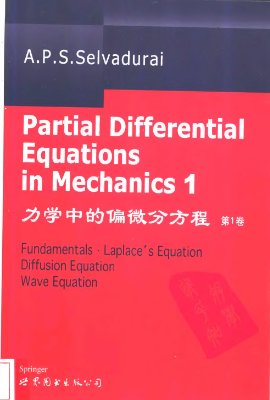Springer, 2000. - 538 pages.
This two-volume work mainly addresses undergraduate and graduate students in the engineering sciences and applied mathematics. Hence it focuses on partial differential equations with a strong emphasis on illustrating important applications in mechanics. The presentation considers the general derivation of partial differential equations and the formulation of consistent boundary and initial conditions required to develop well-posed mathematical statements of problems in mechanics. The worked examples within the text and problem sets at the end of each chapter highlight engineering applications. The mathematical developments include a complete discussion of uniqueness theorems and, where relevant, a discussion of maximum and miniumum principles. The primary aim of these volumes is to guide the student to pose and model engineering problems, in a mathematically correct manner, within the context of the theory of partial differential equations in mechanics.
This two-volume work mainly addresses undergraduate and graduate students in the engineering sciences and applied mathematics. Hence it focuses on partial differential equations with a strong emphasis on illustrating important applications in mechanics. The presentation considers the general derivation of partial differential equations and the formulation of consistent boundary and initial conditions required to develop well-posed mathematical statements of problems in mechanics. The worked examples within the text and problem sets at the end of each chapter highlight engineering applications. The mathematical developments include a complete discussion of uniqueness theorems and, where relevant, a discussion of maximum and miniumum principles. The primary aim of these volumes is to guide the student to pose and model engineering problems, in a mathematically correct manner, within the context of the theory of partial differential equations in mechanics.

